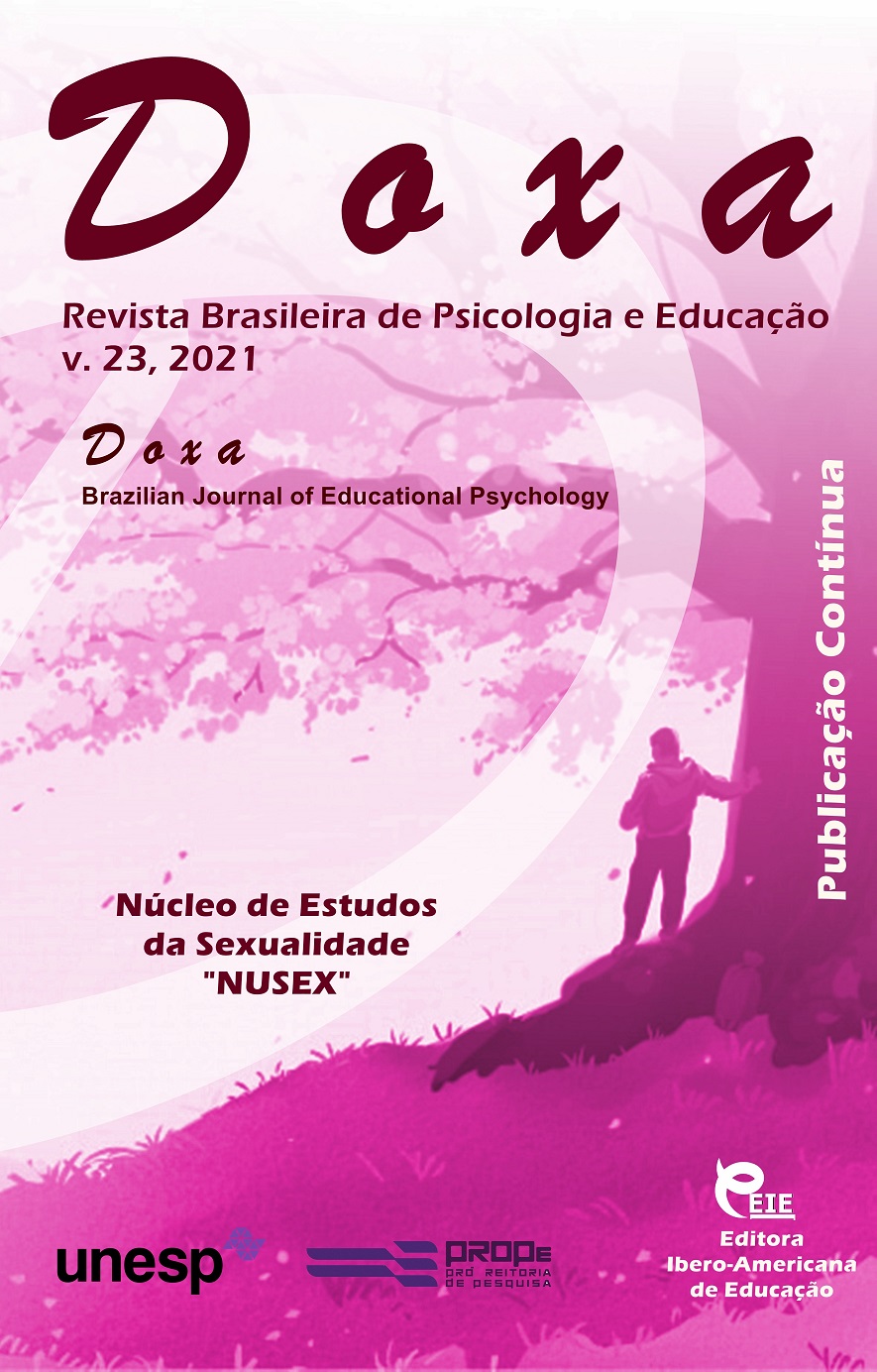A teoria das inteligências múltiplas e a formação acadêmica de estudantes: um estudo de caso na Universidade Federal do Rio Grande
DOI:
https://doi.org/10.30715/doxa.v22i00.15031Palavras-chave:
Inteligências múltiplas, Ensino superior, Análise numérica e estatística do discenteResumo
Este artigo apresenta uma análise de aplicação da correlação canônica sobre a teoria das inteligências múltiplas (IM) em um grupo de estudantes universitários de áreas de conhecimento diversas da Universidade Federal do Rio Grande (FURG). A ideia da pesquisa realizada é encontrar uma combinação entre a formação acadêmica dos estudantes (área de conhecimento escolhida) e as inteligências múltiplas. Algumas variáveis foram analisadas como forma de verificar se existe relação direta entre as IM e a escolha dos cursos ou áreas, como gênero, unidade acadêmica e semestre do curso. Pelos resultados obtidos, podemos concluir que existe correlação entre estas variáveis e as IM na formação de estudantes de graduação de diversas áreas e cursos na Universidade.
Downloads
Referências
ARMSTRONG, T. Multiple intelligences in the classroom. 4. ed. [S. l.]: ASCD, 2017. 243p.
FÁVERO, L. P. et al. Análise de dados: modelagem multivariada para tomada de decisões. Rio de Janeiro: Elsevier, 2009.
GARDNER, H. Frames of mind: the theory of multiple intelligences. New York: Basic Books, 1983.
GARDNER, H. Inteligências múltiplas: a teoria na prática. Porto Alegre: Artmed, 1995.
GONZÁLEZ-TREVIÑO, I. M. et al. Assessment of multiple intelligences in elementary school students in Mexico: An exploratory study, Heliyon, Volume 6, Issue 4, 2020.
HAIR JÚNIOR, J. F. et al. Análise multivariada de dados. 6. ed. Porto Alegre: Bookman, 2009.
MARTINS, M. A. P. Contributions of the theory of multiple intelligences to the assessment of students' production in translator training courses. Ensaio: Avaliação e Políticas Públicas em Educação, Volume: 19, Issue: 71, 2011.
MINGOTI, S. A. Análise de dados através de métodos de estatística multivariada: uma abordagem aplicada. Belo Horizonte: UFMG, 2005.
PEREIRA, D. F.; SILVA, J. C. T. Um estudo sobre as inteligências múltiplas em estudantes de Psicologia. Revista UNIABEU, [S. l.], v. 10, n. 24, p. 126-142, 2017.
TRAVASSOS, L. C. P. Inteligências múltiplas. Revista de Biologia e Ciências da Terra, [S. l.], v. 1, n. 2, doc. sem paginação, 2001.
SABINO, M. A.; ROQUE, A., S. S. A teoria das inteligências múltiplas e sua contribuição para o ensino de língua italiana no contexto de uma escola pública. Revista Eletrônica dos Núcleos de Ensino da UNESP, São Paulo, p. 410-429, 2006.
VIEIRA, H. C.; CASTRO, A. E. de; SCHUCH JÚNIOR, V. F. O uso de questionários via e-mail em pesquisas acadêmicas sob a ótica dos respondentes. In: SEMINÁRIOS EM ADMINISTRAÇÃO, 13., set. 2010, São Paulo. Anais […]. [São Paulo]: USP, 2010.
VISSER, B. A.; ASHTON, M. C.; VERNON, P. A. Beyond g: Putting multiple intelligences theory to the test. Intelligence, [S. l.], v. 34, p. 487-502, 2006.
Downloads
Publicado
Como Citar
Edição
Seção
Licença
Copyright (c) 2021 DOXA: Revista Brasileira de Psicologia e Educação

Este trabalho está licenciado sob uma licença Creative Commons Attribution-NonCommercial-ShareAlike 4.0 International License.
Manuscritos aceitos e publicados são de propriedade da Doxa. É vedada a submissão integral ou parcial do manuscrito a qualquer outro periódico. A responsabilidade do conteúdo dos artigos é exclusiva dos autores. É vedada a tradução para outro idioma sem a autorização escrita do Editor ouvida a Comissão Editorial.









